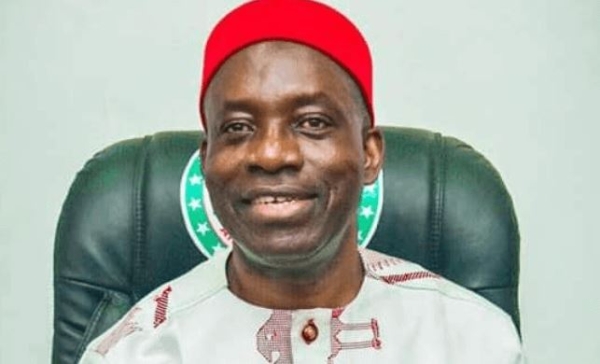The government of Anambra State on Tuesday, October 22, announced plans to withdraw from the suit seeking to declare the operations of the Economic and Financial Crimes Commission, EFCC, illegal.
The state, through its Attorney General, Prof. Sylvia Ifemeje, told the Supreme Court that it was no longer willing to be a part of the legal action that was originally instituted by Kogi state.
The withdrawal notice was dated October 20.
Anambra took the position on a day that Osun state, through its Attorney-General, Mr. Oluwole Bada, applied to be allowed to consolidate its grievance against the operations of the EFCC, with that of Kogi state.
Osun state told a seven-man panel of the apex court led by Justice Uwani Abba-Aji, that it is seeking the same reliefs that Kogi state listed against the EFCC.
Whereas Sokoto state, which was earlier joined as a co-plaintiff in the matter, did not send any legal representative at the resumed proceeding on Tuesday, other states that announced their appearances, were; Kogi, Kebbi, Katsina, Jigawa, Oyo, Benue, Plateau, Cross River, Ondo, Niger, Edo and Bauchi.
Others were; Adamawa, Taraba, Ebonyi, Imo and Nasarawa.
The Attorney-General of the Federation and Minister of Justice, Prince Lateef Fagbemi, SAN, appeared as the sole defendant in the matter.
The AGF did not oppose Anambra state’s request to pull out of the case.
It will be recalled that 16 states of the federation had approached the Supreme Court to challenge the operations of the EFCC.
The states are contending that the anti-graft agency was not validly established by the then administration of President Olusegun Obasanjo.
It will be recalled that the EFCC was established by an Act of the National Assembly on December 12, 2002, by Obasanjo’s administration.
Following the appointment and confirmation of its pioneer Executive Chairman, Mallam Nuhu Ribadu and other administrative officers, by the Senate, the Commission commenced its operational activities on April 13, 2003, though its Establishment Act was later amended in 2004.
However, in the suit before the apex court, the states, through their respective Attorneys General, argued that section 12 of the 1999 Constitution, as amended, was not complied with before the EFCC began its operations.
According to the plaintiffs, it was a mandatory provision of the Constitution that majority of the Houses of Assembly of States must vote and agree to the passage of the EFCC Act, insisting that it was not something that only the National Assembly was legally allowed to do.
Latest News


